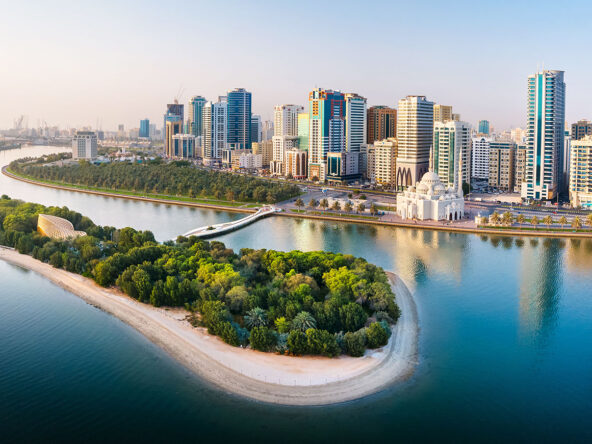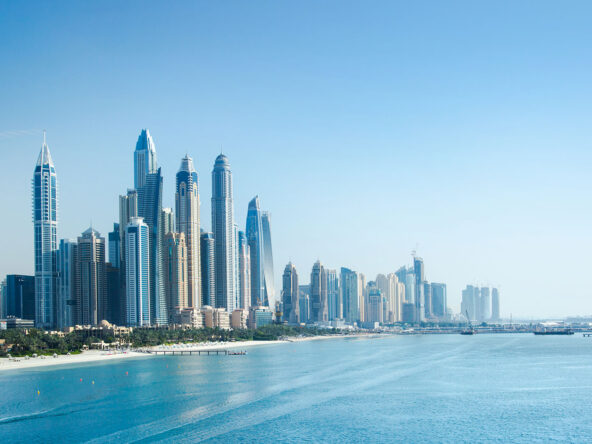The Dubai real estate market is a dynamic landscape, continuously evolving with global economic shifts, government policies, and regional developments. As we move into 2024 and look ahead to 2025, several key trends are emerging that will shape the future of real estate in this vibrant city. This article delves into these trends, providing valuable insights for investors, developers, and prospective homeowners.
1. Sustained Growth in Property Demand
Dubai’s real estate market is poised for sustained growth, driven by a robust economic recovery and increasing investor confidence. The city’s strategic location, world-class infrastructure, and business-friendly environment continue to attract global investors. Additionally, the Expo 2020 legacy is expected to maintain momentum, further boosting demand for residential, commercial, and retail properties.
2. Focus on Sustainable Development
Sustainability is becoming a cornerstone of Dubai’s real estate development. Developers are increasingly incorporating green building practices and energy-efficient technologies into new projects. This shift aligns with the UAE’s commitment to achieving net-zero carbon emissions by 2050. Sustainable developments are not only environmentally friendly but also offer long-term cost savings for residents and businesses.
3. Rise of Smart Cities and Technology Integration
The integration of smart technologies in real estate is set to redefine living and working spaces in Dubai. Smart homes equipped with IoT devices, AI-powered security systems, and automated energy management are becoming more prevalent. Additionally, the development of smart city projects, such as Dubai Silicon Oasis and Smart Dubai, is enhancing urban living through improved connectivity and smart infrastructure.
4. Increasing Popularity of Off-Plan Properties
Off-plan properties are gaining traction among investors and homebuyers due to their attractive payment plans and potential for capital appreciation. Developers are offering flexible payment options, making it easier for buyers to invest in high-quality projects before completion. This trend is particularly appealing to international investors looking for lucrative opportunities in Dubai’s real estate market.
5. Growth in Luxury Real Estate Market
The luxury real estate segment in Dubai continues to thrive, driven by high-net-worth individuals seeking exclusive properties. Iconic developments such as The Palm Jumeirah, Downtown Dubai, and Dubai Marina are witnessing significant interest from both local and international buyers. The demand for luxury villas, penthouses, and waterfront properties remains strong, reflecting Dubai’s status as a premier destination for luxury living.
6. Expansion of Affordable Housing
While luxury properties dominate the headlines, there is a growing emphasis on affordable housing to cater to the middle-income segment. Developers are launching projects that offer affordable yet high-quality living options. This trend is crucial for ensuring a balanced real estate market that meets the diverse needs of Dubai’s population.
7. Impact of Government Initiatives and Policies
The UAE government continues to implement policies that positively impact the real estate sector. Initiatives such as long-term residency visas, Golden Visa program, and favorable foreign ownership laws are attracting foreign investors and expatriates. These measures are designed to enhance investor confidence and promote long-term residency, further stimulating the real estate market.
8. Emergence of New Residential Communities
New residential communities are emerging across Dubai, offering a mix of apartments, villas, and townhouses. Areas such as Dubai South, Jumeirah Village Circle, and Arabian Ranches are gaining popularity due to their modern amenities, strategic locations, and family-friendly environments. These communities provide residents with a holistic living experience, combining convenience, comfort, and connectivity.
9. Trends in Commercial Real Estate
The commercial real estate sector in Dubai is also witnessing notable trends. There is an increasing demand for flexible office spaces and co-working environments, driven by the rise of remote work and the gig economy. Additionally, the retail sector is adapting to changing consumer behaviors, with a focus on e-commerce and experiential retail.
10. Focus on Real Estate Technology (PropTech)
PropTech is revolutionizing the real estate industry in Dubai. Technologies such as blockchain, virtual reality (VR), and artificial intelligence (AI) are enhancing transparency, efficiency, and customer experience. Blockchain is streamlining property transactions, VR is enabling virtual property tours, and AI is providing data-driven insights for better decision-making.
11. Rise of Co-Living and Co-Working Spaces
Co-living and co-working spaces are becoming increasingly popular in Dubai, especially among millennials and young professionals. These spaces offer flexible and affordable living and working arrangements, fostering a sense of community and collaboration. Developers are responding to this trend by creating innovative co-living and co-working projects that cater to the evolving needs of modern urbanites.
12. Adoption of Hybrid Work Models
The adoption of hybrid work models is influencing the demand for both residential and commercial properties. With more companies embracing flexible work arrangements, there is a growing need for homes that offer dedicated workspaces and commercial properties that support hybrid working environments. This trend is reshaping the real estate landscape, creating new opportunities for developers and investors.
13. Emphasis on Wellness and Lifestyle Amenities
Wellness and lifestyle amenities are becoming key differentiators in the real estate market. Properties with features such as fitness centers, wellness clinics, green spaces, and recreational facilities are in high demand. Developers are prioritizing the well-being of residents by incorporating these amenities into their projects, enhancing the overall living experience.
14. Enhanced Real Estate Marketing Strategies
Marketing strategies in the real estate sector are evolving to leverage digital platforms and social media. Virtual tours, drone photography, and interactive property websites are becoming standard practices. Additionally, targeted online advertising and content marketing are helping developers reach a wider audience and engage potential buyers effectively.
15. Impact of Economic Diversification
Dubai’s efforts to diversify its economy away from oil are positively impacting the real estate market. The growth of sectors such as tourism, finance, technology, and healthcare is driving demand for both residential and commercial properties. This economic diversification is creating a more resilient and sustainable real estate market, attracting investors from various industries.
16. Challenges and Opportunities in the Market
While the Dubai real estate market presents numerous opportunities, it also faces challenges. Factors such as global economic uncertainties, fluctuating oil prices, and geopolitical tensions can impact market stability. However, the resilience of Dubai’s economy, coupled with proactive government measures, positions the real estate sector to navigate these challenges effectively.
17. Future Outlook and Predictions
Looking ahead to 2025, the Dubai real estate market is expected to continue its upward trajectory. Key drivers will include ongoing infrastructure projects, technological advancements, and favorable investment conditions. The market will likely see a balanced mix of luxury, affordable, and sustainable developments, catering to diverse buyer preferences.
18. Investment Strategies for 2024 and 2025
Investors looking to capitalize on Dubai’s real estate market trends should consider a diversified approach. Investing in a mix of residential, commercial, and off-plan properties can mitigate risks and maximize returns. Additionally, staying informed about market developments and leveraging professional real estate services can enhance investment outcomes.
19. The Role of Real Estate Agencies
Real estate agencies play a crucial role in the Dubai market, offering expertise and guidance to buyers, sellers, and investors. Agencies like Royal Chateau provide valuable services such as property valuation, market analysis, and transaction management. Partnering with a reputable agency can streamline the buying or selling process and ensure informed decision-making.
20. Conclusion: Navigating the Future of Dubai Real Estate
The Dubai real estate market in 2024 and 2025 is set to offer exciting opportunities for investors, developers, and homeowners. By staying attuned to emerging trends, embracing sustainability, and leveraging technological advancements, stakeholders can navigate the market effectively and capitalize on its potential. With its strategic vision and dynamic growth, Dubai remains a global real estate hub.
 .
.



